I flicked myself again on the neck, just under the chin. Thumb and forefinger, like I’d seen the locals do daily — still unsure of what it meant. An attempt to scratch an itch, signal profanities or mimic a musical instrument?
It’s chacha, our Tushetian host explained with a laugh. It means they want to drink with you.
Chacha: A clear, local alcohol made from grape skins and generally served in fittingly crummy plastic bottles; aka liquid hell fire.
So the picnickers we had stumbled upon at 8am that morning, the horseback riders waving to us from afar and the man at the other end of the table had tapped their necks to offer us a sip of their biggest pride and vice.
The journey to Tusheti began in the capital, Tbilisi, a European city set against a Middle Eastern backdrop with a Russian flair.
At first glance its population seems to hail from Berlin’s vintage thrift stores, war-torn Iraqi neighborhoods and maybe the Baltic states. Squares are adorned with oversized Soviet centerpieces. Sounds and smells of 2008’s bombing blitz riddle its collective memory, still fresh.
Restaurants and cafes, cool by any standards, wait to be stumbled upon, hiding on the second floor of an unmarked concrete block or among the picturesque ruins of abandoned apartments. They offer up a surefire recipe of faded stone, dated furniture, oversized indoor plants, large windows and menus of fresh salads and strong coffee.
Upon arriving in Tbilisi most travelers head north to Kazbegi or west to Svaneti, in both cases skirting the headaches of Abkhazia and South Ossetia, two autonomous regions backed by Russia and facing potential referendums. Sound familiar? Importantly, Russia’s occupation there conveniently makes Georgia ineligible for Nato.
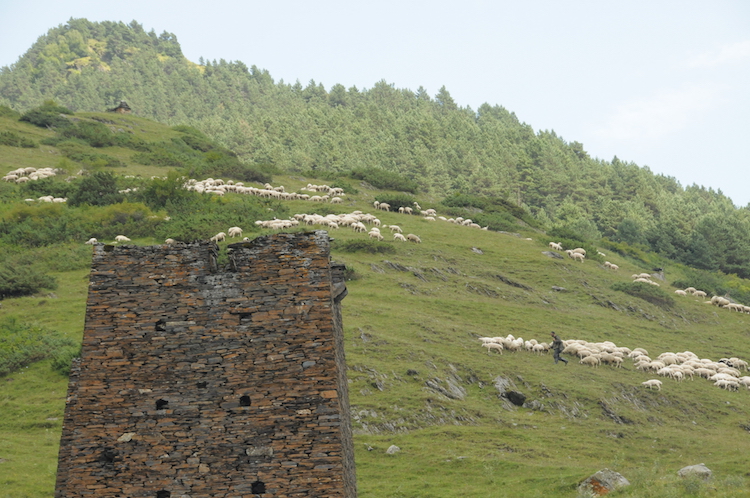
Herding sheep in Tusheti
We veered east toward Telavi, the gateway to Tusheti, in a hot and crowded marshrutka. Tbilisi’s suburbs thinned out into shrinking villages and growing vineyards, flattening in preparation for the Caucasus’s dramatic reveal.
Our four-hour ascent began just east of the controversial Pankisi Gorge, home to ethnic Kists with Chechen roots. Their numbers grew throughout the 90s as refugees journeyed south, until the region, considered by Russia to be a hotbed of terrorism, was bombed in the early 2000s. Today, as home to many of the Chechen fighters in Syria, it still has a problematic reputation for harboring IS sympathies.
Long story short, our gorge was east of that one and purposefully so.
Over the last ten years I have experienced a fair share of grim roads. The turns didn’t make me nauseous, the crash death statistics brought no anxiety and the sight of a roadside cliff hardly held my interest. The journey to Tusheti was different.
Georgia doesn’t have much of a traveller’s circuit, but if it did, Tusheti wouldn’t be on it, mostly because of the entry: a single lane that demands a 4×4, years of skill and for many Tushetians, a few swigs of something strong.
The views — incredible. The road — a disaster. Four hours of hairpin turns that can’t always be made in one go and require creative maneuvers on steep, unstable gravel.
Omalo’s green plateau is the eventual reward, speckled with grazing horses and surrounded by ancient huts, each with its own plume of smoke rising from a dinner fire. Fellow visitors are Tushetians retreating to their mountain homes for summer or city residents escaping the heat.
Our first night was one of song.
We dined with a Georgian family that shared quickly and generously. Communication was limited to smiles and nods with the occasional contribution of an un-conjugated verb. The oldest of the group, a happy, toothless man, served as the tamada, the meal’s official toast maker. Every ten minutes drinks were re-poured, a toast was given and our glasses were downed.
The quiet Georgian next to me, a former national goalie twice our size, insisted that we keep up with the pace of chacha and beer. Our apprehension was met with laughs and an extra healthy pour. Song broke out as the night progressed – lullabies and anthems about country and loved ones that clearly tugged at their heartstrings. A group of girls joined playing the panduri, a local folk guitar.
We left the next morning just after sunrise, hugging our dinner mates goodbye and wondering how Tusheti could live up to such a grand introduction.
From Omalo the trail led toward Dartlo and then further on to Chesho. Medieval defense towers and herds of sheep marked the way. A friendly dirt biker stopped us, a UN English-Georgian translator who lives in New York nine months of the year and spends the other three “free” and home in Tusheti.
We used to be able to walk up to the next village in Chechnya…like neighbors. Now you have to stay away. Russian border guards are there, drunk and bored with guns, he told us that evening at his place, where we’d been invited to stay.
There was that nostalgia again, born from the sheer love locals have for those mountains, for their festivals, their horses and their customs. Aside from the supposed threat of roaming border patrols and the oversized, angry sheep dogs that occasionally forced us to reroute, Tusheti is an unexpected, underrated slice of Alpine heaven at the edge of Chechnya and something tells me it won’t change any time soon.
Sit in the front. It’s less scary, Romo, our driver told me on our way back down the mountain. With each bump the van’s nose pointed skyward and the road momentarily vanished. Don’t worry. I always know exactly where the tires are. You have to here,” he reassured with a hint of pride.
Sorry, he told us minutes later when we stopped to help a family fix a flat tire. It’s not like other places. In Tusheti, you have to stop and help.
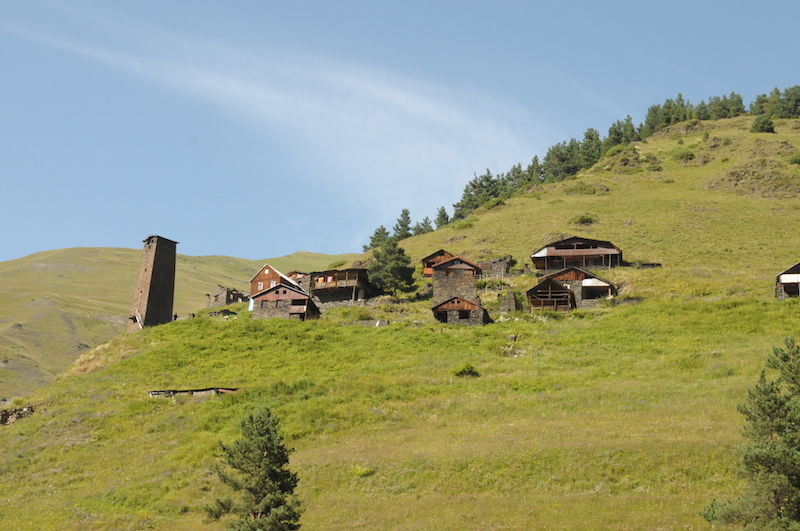

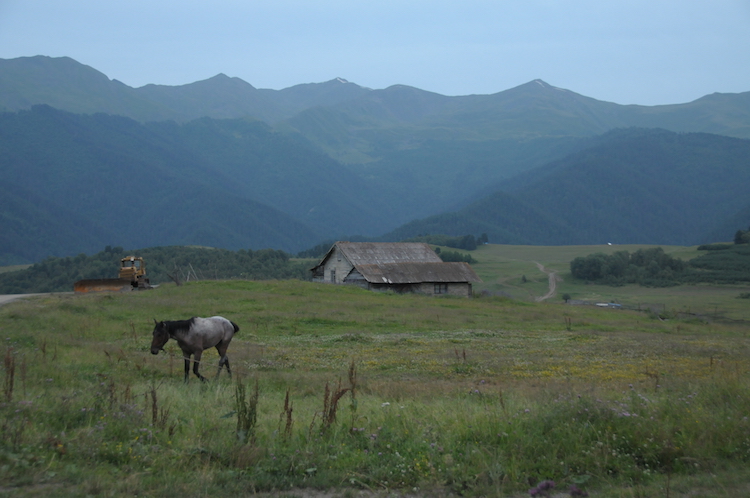
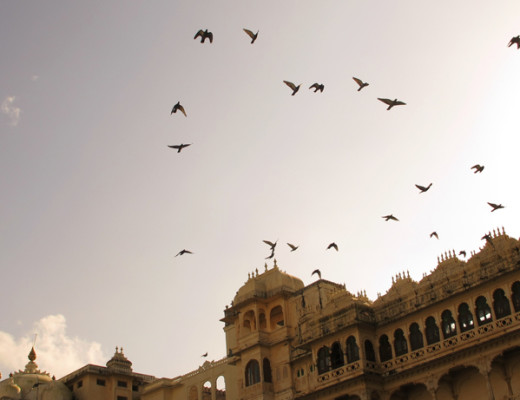
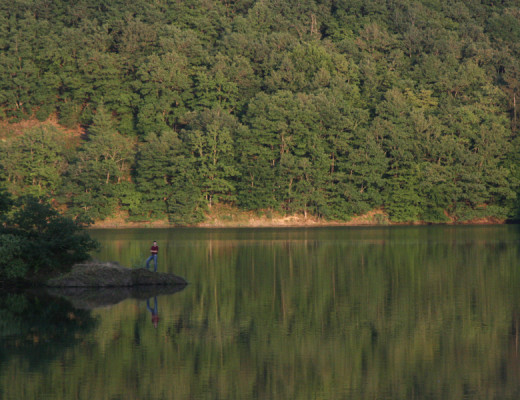
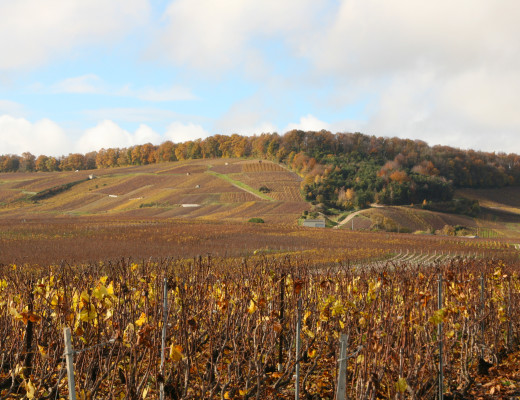
2 Comments
kathy Myers
November 4, 2016 at 9:45 pmWhat gorgeous writing! You capture so much variety about this place. I smell the wood smoke, and the sweat of late-night chacha drinkers. I feel the sense of pride the people have for their homeland even thought it has been pushed and pulled in various political tug of wars for so long.. This is a great piece. and I love the photos. Perhaps we’ll see you over the holidays; if not happy travels.
Natalia
November 9, 2016 at 3:54 pmThanks, Kathy! It was a particularly special trip. I wish I could bottle the smells and post them to the site. You will definitely see me in December! I’ll be there for a whole month.